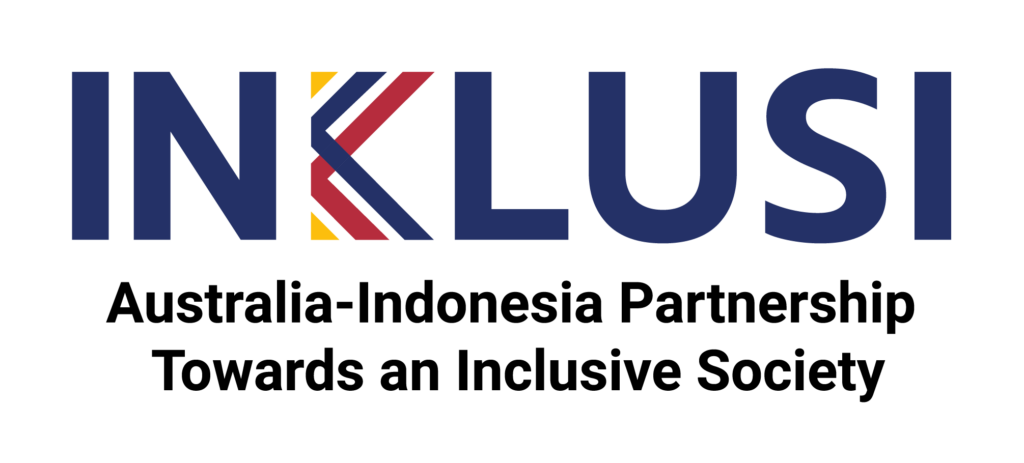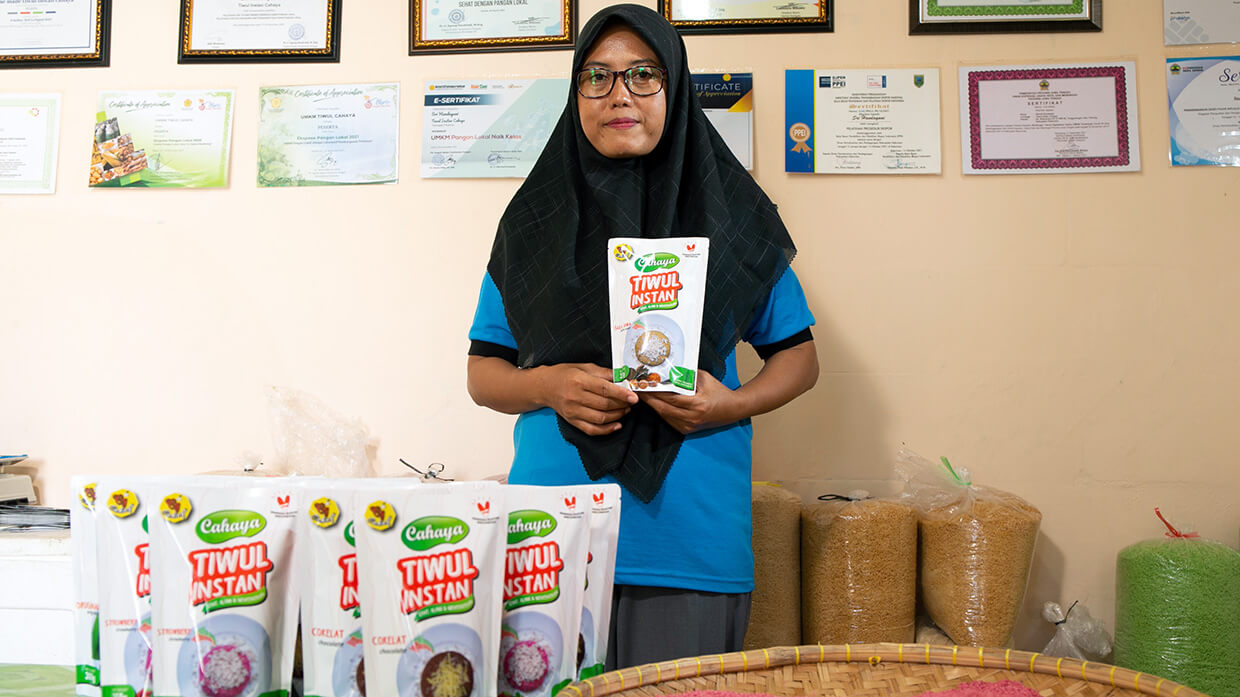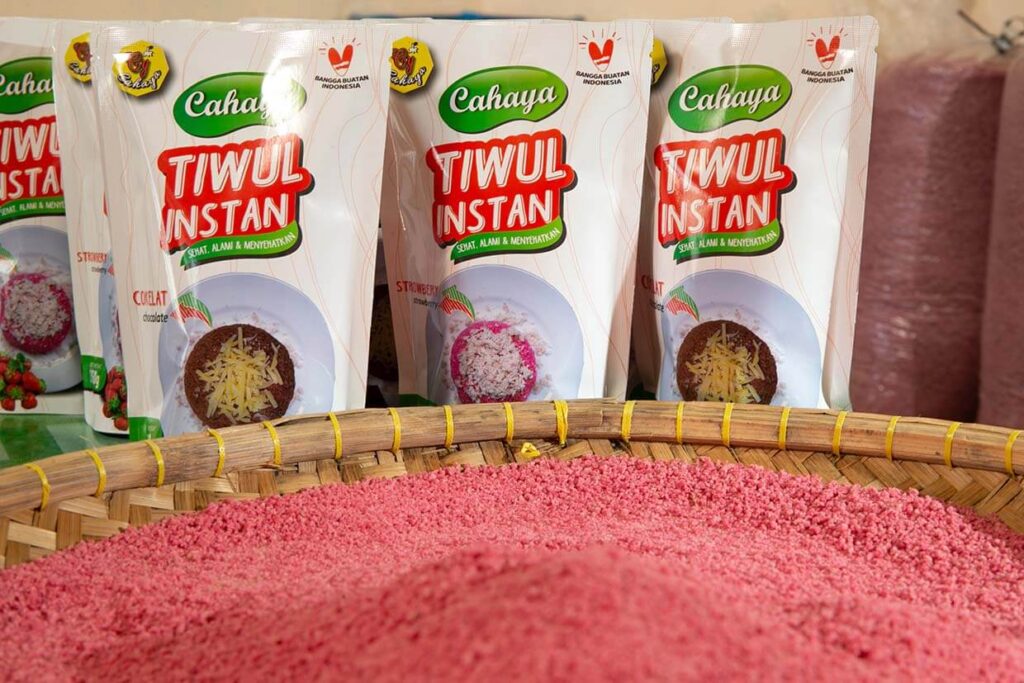A group of former migrant workers known as SERBUMI, which is assisted by INKLUSI Partner Migrant CARE in the village of Tanggulangin, Kebumen, Central Java, has become a beacon of hope for their community with their livelihoods initiative called “Tiwul Cahaya”.
Since 2016, Migrant CARE has been implementing the DESBUMI program (Village that Cares for Migrant Workers) in Tanggulangin Village. DESBUMI is a community-based initiative developed under the forerunner MAMPU Program. DESBUMI enhances the protection and access to services for migrant workers before, during and after migration. The SERBUMI groups, composed of mostly return female Indonesian Migrant Workers (PMI) and their families, focuses on organising former PMI to strengthen the group’s livelihoods by utlising local resources.
Recognising the abundance of cassava in their village, SERBUMI, with the guidance of Migrant CARE in 2017, embarked on a community project to process cassava into a food product called tiwul. Tiwul is an alternative carbohydrate-rich food with low glucose content, serving as a rice substitute. Tiwul Cahaya later became the flagship product of the SERBUMI group, creating economic opportunities for the people of Tanggulangin.
However, Tiwul Cahaya production faced several challenges, including a lack of capacity within the group in managing a business and limited access to funding, which hindered their production.
Sri Handayani, the leader of SERBUMI in Tanggulangin and coordinator of Tiwul Cahaya, expressed her frustrations, “In the past, we could only produce the raw material but didn’t know how to process it or market it. Additionally, we lacked proper production equipment, so we made do with what we had.”
To support SERBUMI reach their business potential, INKLUSI has been working with Migrant CARE to build migrant workers economic and business capacity to create lasting and sustainable livelihood opportunities. Through INKLUSI, Migrant Care has provided training in entrepreneurship, including brand building, online marketing, financial management, and access to funding.
We enhanced the group’s abilities and skills to run their business. This is an effort to empower the economic prospects of former overseas migrant workers when they return to their hometowns, said Yusimah, a staff member of the Migrant CARE Program in Kebumen.
This effort has caught the attention of the Tanggulangin Village government. SERBUMI has now secured financial support from the Tanggulangin Village government to establish and empower more migrant worker groups, purchase cassava flour processing machines, and support the tiwul production.
Through INKLUSI, Migrant CARE’s marketing support for Tiwul Cahaya has expanded to e-commerce platforms like Tokopedia through their program aimed at empowering digital economies for former migrant women. Since expanding their market access, Tiwul Cahaya sales have increased from 40 packages per month to approximately 200 packages. Tiwul Cahaya has also developed various product variations and flavours, which adds to the uniqueness of their products.
“We continue learning from similar businesses in other areas so that Tiwul Cahaya becomes widely recognized, even in international markets, and has a positive impact on the community, especially for women in cassava-producing regions,” Sri Handayani explained.
More than just a business, Tiwul Cahaya serves as tangible proof that change is a process that begins not only with determination and perseverance but is also supported by various parties, including the government and the private sector.





